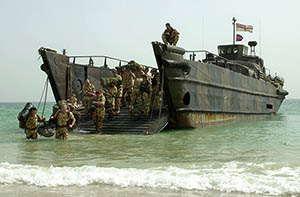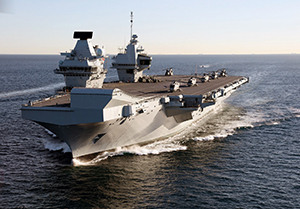UK war risk insurance
 On 21 December 1906, the British Parliament enacted the Marine Insurance Act, a legislation not only governing maritime law in the United Kingdom, but also imposed in the rest of the world where it is adopted by many foreign legislations.
On 21 December 1906, the British Parliament enacted the Marine Insurance Act, a legislation not only governing maritime law in the United Kingdom, but also imposed in the rest of the world where it is adopted by many foreign legislations.
The new law, disconnected from reality, does not impose a differentiated treatment between ordinary risk and war risk, remaining far from the practices of the market players.
The Marine Insurance Act stipulates that marine insurance shall include both war risks and marine risks, thus subjecting them to the same scheme.
Despite these provisions, the world's leading insurance market, London, continued to exclude war risks from its coverage.
On the eve of the First World War and after consulting with private insurers, the British government concluded in 1913 that the latter were unable to meet the needs of the market in the event of war.
It was therefore up to the State to intervene and take charge of a large part of the maritime transport risks. Consequently, war risks are no longer the sole responsibility of insurers. The British government covers 80% of the risk underwritten by private insurers. This assumption of responsibility by the public authorities is however only applicable if the insurers are unable to cover this hazard at a reasonable price.
In the early 1900s, wars were no longer confined to the seas or open battlefields. Cities were now among the targets of attacks, especially during the first aerial bombardments. This evolution of war exposes insurers who provide "all risks" coverage (excluding marine insurance) to enormous losses.
To reduce this increased exposure to war risks, Lloyd's and the Association of British Insurers (ABI) concluded the War Risks Waterborne Agreement, to exclude foreign and civil war risks from all policies issued on the market. This exclusion is still applied in many non-marine property policies.
 The agreement, also signed by other insurance companies outside the London market, was revised in 1937. Now insurers can once again cover war risks for hulls and cargoes. A 48-hour cancellation notice) was also introduced (the notice period has been reduced to 14 days and now to 7 days). In its new formulation, the "Waterborne Agreement" covers war risks at sea and the risks of strikes, riots and civil commotion (SRCC) on land.
The agreement, also signed by other insurance companies outside the London market, was revised in 1937. Now insurers can once again cover war risks for hulls and cargoes. A 48-hour cancellation notice) was also introduced (the notice period has been reduced to 14 days and now to 7 days). In its new formulation, the "Waterborne Agreement" covers war risks at sea and the risks of strikes, riots and civil commotion (SRCC) on land.
In 1939, the threat of a new world war loomed over the world. The coverage of war risks is once again on the agenda. Its objective was to preserve the continuity of commercial exchanges. That same year, the British government enacted the War Risk Act. Under this law, war risks were underwritten by specific entities that were reinsured by the government (Ministry of War Transport).
In 1952, the Marine and Aviation Insurance (War Risks) Act was enacted. A specific fund attached to the Ministry of Transport was also created, the "Marine and Aviation Insurance (War Risks) Fund". This fund took over the business underwritten under the War Risks Insurance Act of 1939.
Under the 1952 Act, the Department of Transportation insures and reinsures ships, aircraft, and cargo against war risks and, under certain circumstances, against other risks.
After World War II and the ravages of the Spanish Civil War (1936-1939), there was a tacit agreement to exclude land-based war risks from marine insurance policies, a trend that had continued until the early 2000s.
Since 2005, the London market has again included land war risks in a single marine facultative transport policy, which covers both the sea and road/rail portions of a voyage.
Lloyd's, which acts as a true global marine transport insurance and reinsurance exchange, has therefore paved the way for the coverage of such risks on a global level. Since then, the London market has become a leader in war risks with a market share of 80%.
UK War Risks Club
Established over a century ago, the UK War Risks Club is an independent war risks insurance association with over 100 years’ experience serving the British and international shipping industry.
It specializes in insuring against the risks of war, civil war, revolution and rebellion, capture, seizure, detention and confiscation.
Read also | History of war risks insurance
